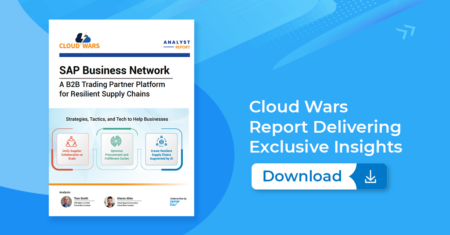
In this episode of the Office of the CFO podcast, Acceleration Economy’s Tom Smith chats with SignUp Software’s Olof Hedin, Group CEO, and Tomás Navarro, Product Manager, E-Invoicing, about e-invoicing and the shift toward continuous transaction controls (CTC).
Highlights
The Significance of E-Invoicing for Modern Business (00:50)
Hedin describes e-invoicing as an evolution toward an easier, more standardized way to exchange information. It can include all the documents needed during the procure-to-pay process.
Electronic invoicing differs from traditional digital invoicing. E-invoicing started with a point-to-point connection. With e-invoicing, everything comes pre-validated because the invoice has to comply with certain formats, standards, and machines, such as ERP systems.
Continuous Transaction Controls (03:50)
Hedin provides a breakdown of the shift toward continuous transaction controls (CTC) and its benefits. CTC involves invoice data being transmitted to tax authorities in real time. He notes that governments getting more tax money is the biggest benefit; this is a main driving force behind the trend toward CTC. “It’s a fantastic driving force that will not stop this steam train that started rolling,” Hedin says.
This also introduces the business-to-government flow. Different countries can also have different country conditions. For instance, in some countries, before sending invoices, it has to be approved. Navarro acknowledges that this is an ongoing, evolving process.
E-Invoicing Compliance Mandates (07:57)
Hedin and Navarro share a few pieces of advice for how businesses can ensure they comply with e-invoicing mandates:
- Where is your business based and running? Organizations must have a very clear map this. Larger companies may have different subsidiaries with different legal backgrounds; business leaders must be aware of all of them.
- Where are you sending the invoice? There may be additional requirements to comply with depending on where the invoice is being sent.
- Find a partner that knows the legal frameworks of all the countries you work with. It’s vital to stay up-to-date with the mandates in the countries of your customers and partners.
While there may be challenges and growing pains with this, it will be helpful in the long run.
Looking Ahead (15:36)
Currently, there are a little over 50 countries that have government mandates. The expectation is that it will be well over 100 countries in five years from now. This is going fast and all the governments will want to jump on this bandwagon, Hedin notes.
Navarro suggests that one day, “the tax office will be just another business party.” While businesses will have to invoice customers and inform their tax authority, in the end, it will save time with tax return processes. “Take the tax authority as a business party, and the CTC is going to help in that direction.”

AI Agent & Copilot Summit is an AI-first event to define opportunities, impact, and outcomes with Microsoft Copilot and agents. Building on its 2025 success, the 2026 event takes place March 17-19 in San Diego. Get more details.








